Raw Honey vs Manuka Honey: Which One is Better?
Are you curious about the differences between raw honey and Manuka honey? While both types of honey are considered to be healthy and natural sweeteners, there are some key differences that set them apart.
Raw honey is honey that has not been pasteurized or filtered, while Manuka honey is made exclusively from the nectar of the Manuka plant native to New Zealand and Australia.
One of the main differences between raw honey and Manuka honey is their taste and texture. Raw honey is typically thicker and more opaque than processed honey, and it may contain bits of pollen, wax, and propolis.
In contrast, Manuka honey has a thicker, darker appearance and a distinctively earthy, slightly bitter taste. Manuka honey is also known for its unique antibacterial properties, which are thought to be due to its high levels of methylglyoxal (MGO).
If you’re trying to decide between raw honey and Manuka honey, it’s important to consider your specific health needs and preferences.
While both types of honey offer potential health benefits, Manuka honey may be a better choice for those looking for a natural way to support their immune system or treat minor skin infections.
On the other hand, raw honey may be a better choice for those looking for a natural sweetener that hasn’t been processed or filtered.
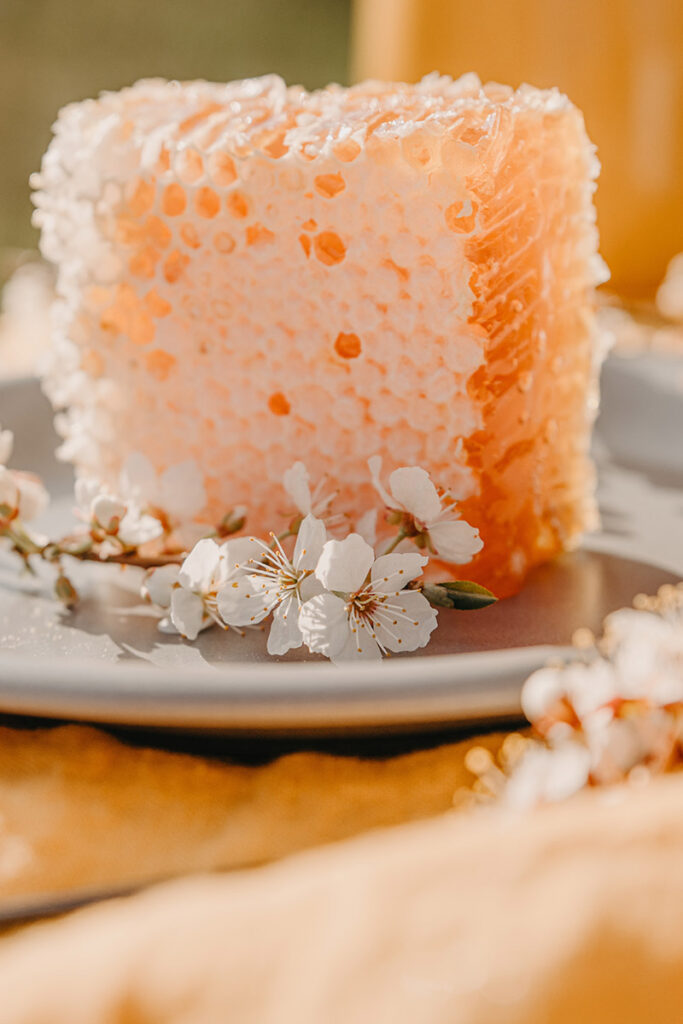
What is Raw Honey?
If you are looking for a natural sweetener, raw honey is a popular choice. Raw honey is a type of honey that is not processed or heated, unlike commercial honey.
It is pure, unfiltered, and unpasteurized, which means that it retains all the beneficial nutrients that are usually lost during the processing of commercial honey.
Raw honey is harvested straight from the beehive and is filtered to remove any impurities such as beeswax and dead bees.
It is then left in its natural state, with all its enzymes, vitamins, and minerals intact. Raw honey is a source of antioxidants, which can help protect your body from free radicals.
One of the benefits of raw honey is its antibacterial properties. Raw honey contains hydrogen peroxide, which is a natural antiseptic that can help fight off harmful bacteria. It also contains phytonutrients, which are plant compounds that can boost your immune system.
Raw honey has a lower glycemic index than processed honey, which means that it doesn’t cause a rapid spike in blood sugar levels. This makes it a healthier alternative to processed sugar or artificial sweeteners.
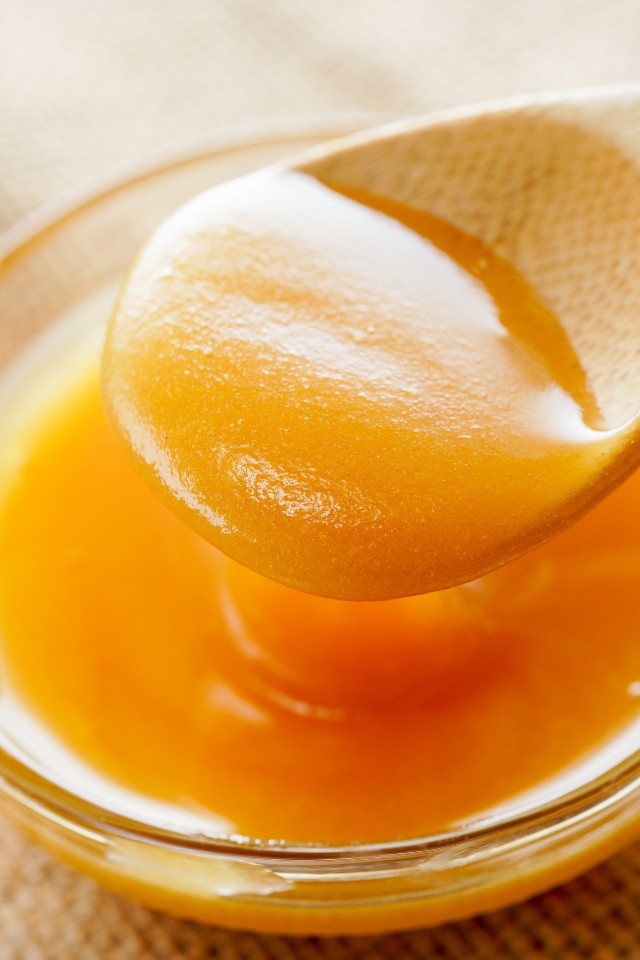
What is Manuka Honey?
If you’re interested in natural remedies, you’ve probably heard of Manuka honey. Manuka honey is a type of honey that comes from New Zealand and Australia, and it’s known for its unique properties.
Manuka honey is made from the nectar of the Manuka tree, which is native to these regions. This tree produces flowers that are rich in nectar, which bees use to make honey.
The honey that results from this process is different from other types of honey because it contains a unique compound called methylglyoxal (MGO).
MGO is what gives Manuka honey its antibacterial properties. According to some studies, Manuka honey can be effective against a range of bacteria, including those that are resistant to antibiotics.
This is why Manuka honey is often used as a natural remedy for wounds, sore throats, and other infections, as it can help speed up the healing process and fight off harmful bacteria.
In addition to its antibacterial properties, Manuka honey is also high in antioxidants and has anti-inflammatory effects. This makes it a popular choice for people who are looking for natural ways to support their immune system and overall health.
It’s important to note that not all Manuka honey is created equal. The quality of Manuka honey is measured by its Unique Manuka Factor (UMF), which is a rating system that measures the amount of MGO in the honey.
The higher the UMF rating, the more potent the honey is. So, if you’re looking to use Manuka honey for its health benefits, it’s important to choose a high-quality product with a high UMF rating.
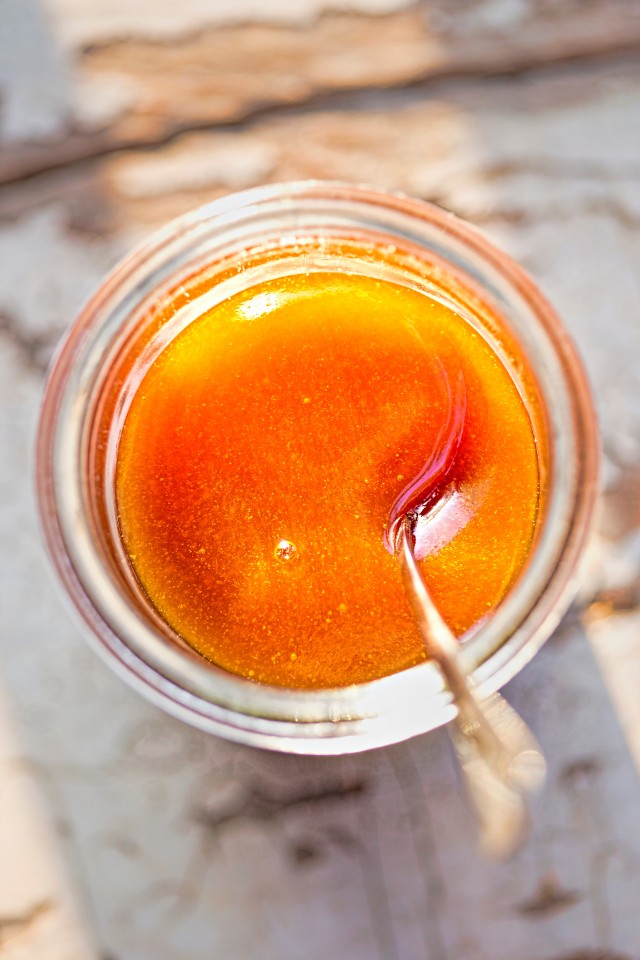
Why is Manuka Honey So Expensive?
The unique properties of Manuka honey make it highly sought after, which is why it can be quite expensive compared to other types of honey. The production process of Manuka honey is also more labor-intensive and requires specialized techniques, which adds to its cost.
Moreover, the demand for Manuka honey has increased in recent years due to its growing popularity as a natural remedy.
In some cases, there have been reports of fraudulent Manuka honey products on the market, so it’s important to do your research and only buy from trusted brands that can provide proof of their UMF rating.
However, all in all, the reason behind this costly price is the rarity and unique properties of Manuka honey, making it a valuable and beneficial product for our health. honey is justified by its unique properties and the effort that goes into producing it.
In fact, many people are willing to pay a higher price for its health benefits and effectiveness in treating various ailments.
How To Choose Manuka Honey?
As mentioned earlier, when choosing Manuka honey, it’s important to look for a high UMF rating. The UMF rating can range from 5+ to 20+. Generally, the higher the rating, the more potent and therapeutic the honey will be.
It’s also recommended to buy from reputable brands that have been independently tested and certified by organizations such as UMFHA (Unique Manuka Factor Honey Association) or MGO (Methylglyoxal), which measure the concentration of antibacterial properties in Manuka honey.
Additionally, you can also look for other quality indicators such as a dark color and thick texture, as these are signs of a high-quality product.
Manuka honey should also be raw and unpasteurized to ensure that all the beneficial enzymes and nutrients are preserved.
Lastly, always check the label for any additives or fillers, as pure Manuka honey should not contain any additional ingredients. If you notice any added sugars or other substances, it’s best to avoid that product.
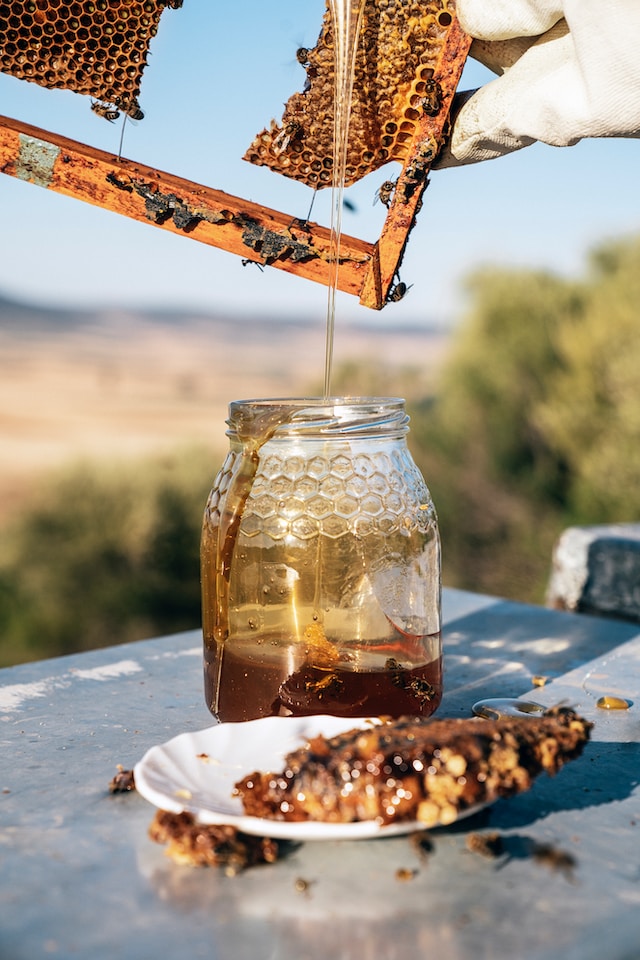
Origins of Raw Honey
Raw honey is a natural sweetener produced by bees from the nectar of flowers. It has been used for centuries as a food and medicine due to its numerous health benefits.
Geographical Distribution
Raw honey is produced all around the world, with different regions known for producing unique flavors and colors of honey.
The taste and texture of raw honey are influenced by the types of flowers from which the bees collect nectar. Some regions known for producing high-quality raw honey include:
- New Zealand: Known for producing Manuka honey, which has unique antibacterial properties.
- Brazil: Famous for producing light-colored honey with a floral taste.
- Spain: Known for producing dark-colored honey with a strong flavor.
- United States: Produces honey from a variety of flowers, including clover, orange blossom, and wildflowers.
Bee Species Involved
Raw honey is produced by several species of bees, including the European honey bee (Apis mellifera) and the Asian honey bee (Apis cerana).
The European honey bee is the most commonly used species for honey production, as it is easy to manage and produces large quantities of honey.
In addition to the honey bee, other species of bees also produce honey, including bumblebees and stingless bees. However, their honey production is much lower than that of the honey bee, and their honey is not commonly consumed by humans.
Overall, raw honey has a rich history and is produced all around the world by various species of bees. Its unique flavor and health benefits have made it a popular natural sweetener for centuries.

Origins of Manuka Honey
Manuka honey is a unique type of honey that is produced in New Zealand and Australia. It is derived from the nectar of the Manuka tree, which is native to these regions.
Manuka honey is known for its antibacterial properties and has been used for centuries in traditional medicine practices. It gained widespread recognition in the 1980s when researchers discovered its exceptional healing properties.
Geographical Distribution
Manuka trees are found in the wild in New Zealand and Australia. The tree is also grown commercially in these regions.
The honey produced from the Manuka tree is considered to be one of the most valuable types of honey in the world due to its unique properties.

Bee Species Involved
The bees that produce Manuka honey are a specific species of honeybee known as the Apis mellifera. These bees are found in many parts of the world, but the ones that produce Manuka honey are unique in that they are specially adapted to collect nectar from the Manuka tree.
In conclusion, Manuka honey is a unique type of honey that is produced in New Zealand and Australia from the nectar of the Manuka tree. The bee species involved in producing this honey is the Apis mellifera, which is specially adapted to collect nectar from the Manuka tree.

Nutritional Value of Raw Honey
Raw honey is a natural sweetener that has been used for centuries. It is made by bees from the nectar of flowers and collected from honeycombs.
Raw honey has many potential health benefits, including antioxidant and antibacterial properties. Here are some of the nutritional values of raw honey:
- Calories: Raw honey is high in calories, with one tablespoon containing around 64 calories.
- Carbohydrates: Raw honey is primarily made up of carbohydrates, with around 17 grams of carbohydrates per tablespoon.
- Protein: Raw honey contains small amounts of protein, with around 0.1 grams per tablespoon.
- Vitamins and minerals: Raw honey contains small amounts of vitamins and minerals, including vitamin C, calcium, and iron.
One of the unique properties of raw honey is that it contains small amounts of pollen, which can provide some health benefits. Pollen is rich in antioxidants and has been shown to have anti-inflammatory properties.
Raw honey also contains enzymes that can aid in digestion and help your body break down food more efficiently. Additionally, it has been shown to have pre-biotic properties, which can help promote the growth of beneficial bacteria in your gut.
It’s important to note that raw honey should not be given to infants under one year old, as it can contain spores of the bacteria Clostridium botulinum, which can cause botulism in young children.
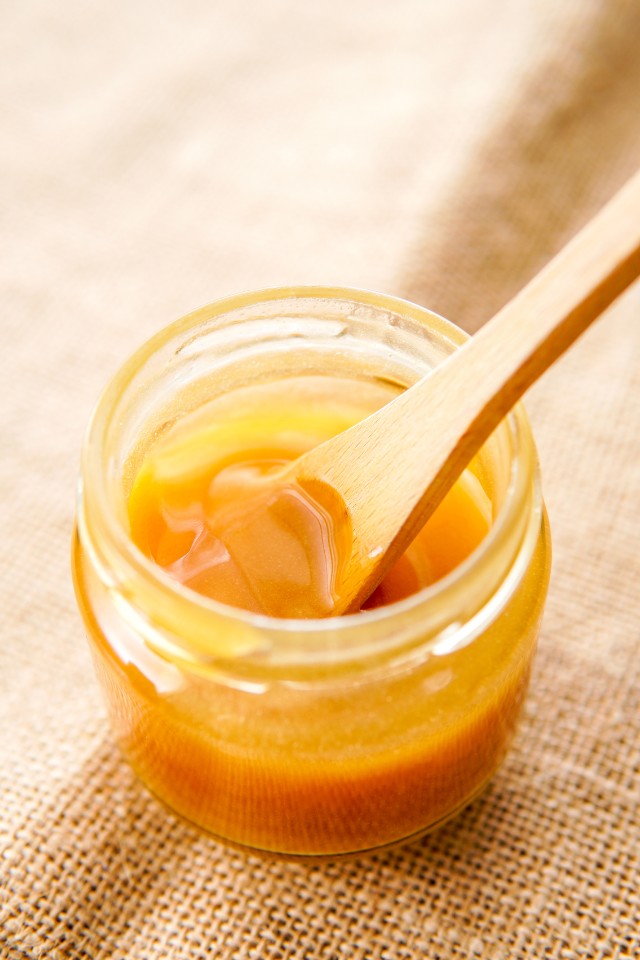
Nutritional Value of Manuka Honey
Manuka honey is a type of honey that is produced by bees that feed on the flowers of the Manuka tree, which is native to New Zealand. It has been used for centuries by the indigenous Maori people for its medicinal properties.
Manuka honey is known for its high nutritional value, which is why it is often used as a natural remedy for a variety of ailments. Here are some of the key nutrients found in Manuka honey:
- Leptosperin: This is a unique compound found only in Manuka honey. It is used as a marker to identify authentic Manuka honey.
- Dihydroxyacetone (DHA): This is a natural sugar found in the nectar of the Manuka flower. It is converted into methylglyoxal (MGO) during the honey-making process.
- Methylglyoxal (MGO): This is the most important compound found in Manuka honey. It is responsible for the honey’s antibacterial properties.
Manuka honey is also a good source of vitamins and minerals, including:
- Vitamin B6: This vitamin is important for maintaining healthy brain function and for producing the hormones serotonin and norepinephrine.
- Thiamin (Vitamin B1): This vitamin is essential for converting carbohydrates into energy.
- Niacin (Vitamin B3): This vitamin is important for maintaining healthy skin and for converting food into energy.
- Calcium: This mineral is important for maintaining strong bones and teeth.
- Iron: This mineral is essential for producing red blood cells and for transporting oxygen throughout the body.
Overall, Manuka honey is a nutritious food that provides a variety of health benefits. A cup of green tea with Manuka honey, for example, can help boost your immune system, aid in digestion, and improve your overall well-being.
Additionally, Manuka honey has been found to have anti-inflammatory properties which can help reduce inflammation in the body.
In addition to its nutritional value, Manuka honey is also prized for its unique taste. It has a rich and complex flavor with hints of caramel and a slightly bitter aftertaste. However, it is important to note that it is also high in sugar and should be consumed in moderation.
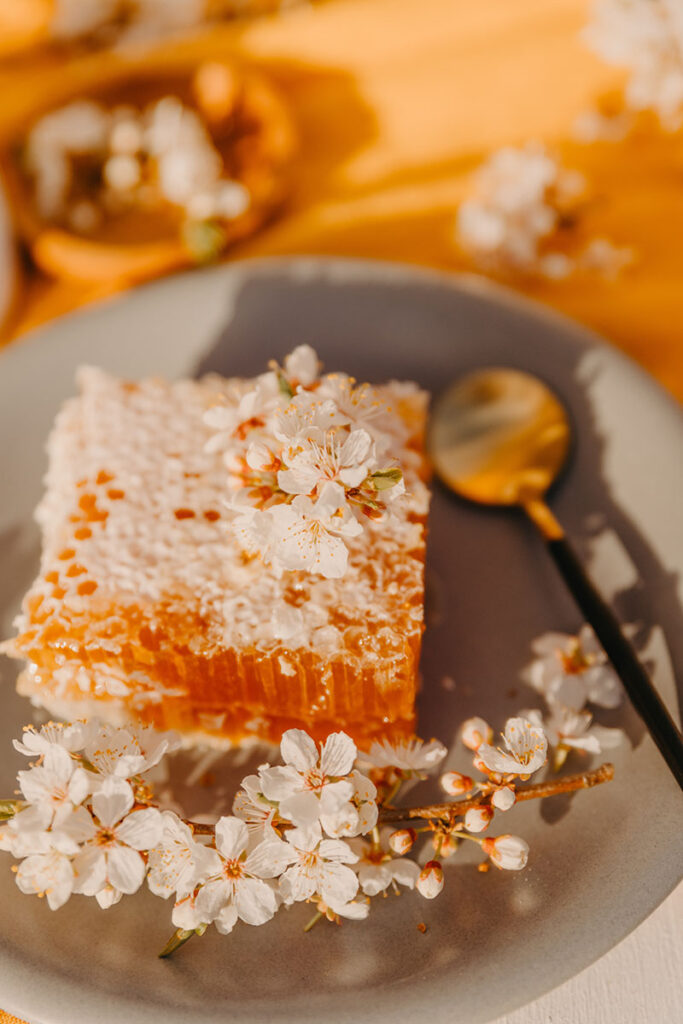
Health Benefits of Raw Honey
Raw honey is a natural sweetener that has been used for centuries for its health benefits. Here are some of the benefits of consuming raw honey:
- Rich in Antioxidants: Raw honey contains antioxidants that can help protect your body from cell damage caused by free radicals. Antioxidants are important for maintaining good health and preventing diseases.
- May Help with Digestive Issues: Raw honey contains enzymes that can help improve digestion and reduce inflammation in the digestive tract. It can also help soothe an upset stomach and relieve constipation.
- May Boost Immune System: Raw honey has antibacterial and antiviral properties that can help boost your immune system. It can also help fight off infections and reduce the severity of cold and flu symptoms.
- May Help with Allergies: Raw honey contains small amounts of pollen, which can help your body build up a tolerance to allergens. Consuming raw honey may help reduce allergy symptoms over time.
- May Help with Wound Healing: Raw honey has been used for centuries as a natural remedy for wound healing. It has antibacterial properties that can help prevent infections and promote healing.
It is important to note that while raw honey has many health benefits, it should not be given to infants under one year of age as it may contain bacteria that can cause infant botulism. Additionally, people with diabetes should consume raw honey in moderation as it can raise blood sugar levels.
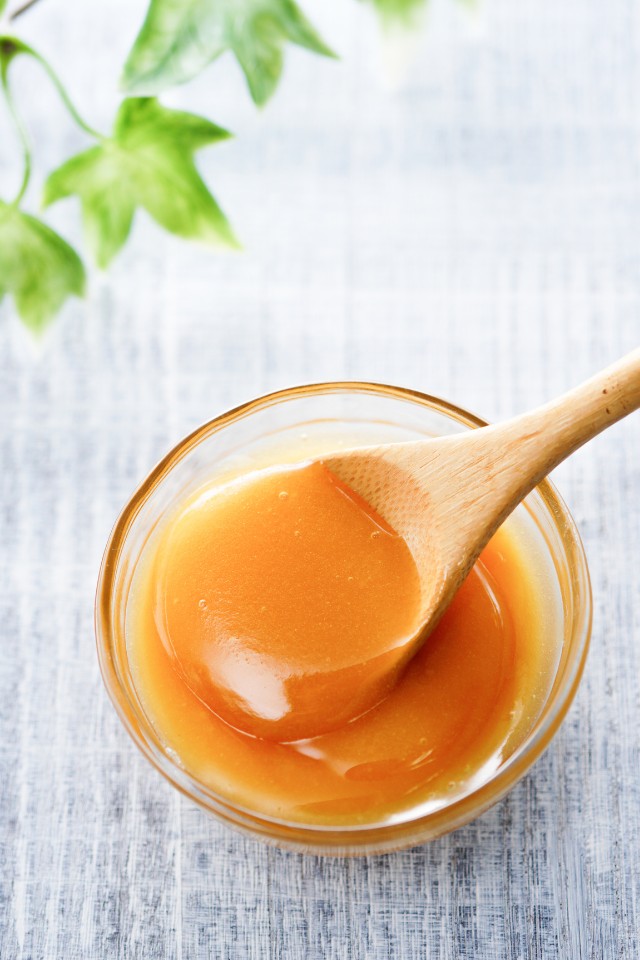
Health Benefits of Manuka Honey
Manuka honey is known for its unique antibacterial properties and is often used as a natural remedy for various health conditions. Here are some of the potential health benefits of consuming Manuka honey:
1. Antibacterial Properties
Manuka honey contains a compound called methylglyoxal (MGO) that gives it its antibacterial properties. MGO is produced when dihydroxyacetone, a compound found in the nectar of Manuka flowers, is converted into MGO during the honey-making process. The higher the concentration of MGO, the stronger the antibacterial properties of the honey.
2. Wound Healing
Manuka honey has been used for centuries as a natural remedy for wound healing. Its antibacterial properties can help prevent infections and its anti-inflammatory properties can help reduce swelling and promote healing. Manuka honey has been found to be effective in treating burns, ulcers, and other skin conditions.
3. Digestive Health
Manuka honey has been found to have a prebiotic effect on the gut, which means it can help promote the growth of beneficial bacteria in the digestive system. This can help improve digestion and overall gut health.
4. Sore Throat Relief
Manuka honey can also be used to soothe a sore throat. Its antibacterial properties can help kill the bacteria that cause sore throat while its anti-inflammatory properties can help reduce inflammation and pain.
5. Immune System Boost
Manuka honey contains antioxidants that can help boost the immune system and protect the body against free radicals. Its antibacterial properties can also help prevent infections, which can weaken the immune system.
Overall, Manuka honey is a natural and delicious way to potentially improve your health. However, it is important to note that not all Manuka honey is created equal, and the concentration of MGO can vary depending on the brand and the type of Manuka honey.
It is recommended to look for Manuka honey with a UMF (Unique Manuka Factor) rating of 10 or higher to ensure its antibacterial properties.

Potential Risks and Side Effects of Raw Honey
While raw honey has many health benefits, it’s important to be aware of potential risks and side effects. Here are a few things to keep in mind:
Allergic Reactions
Raw honey can contain pollen, which can trigger allergic reactions in some people. If you have pollen allergies, it’s best to avoid raw honey altogether.
Symptoms of an allergic reaction can include hives, swelling, and difficulty breathing. If you experience any of these symptoms after consuming raw honey, seek medical attention immediately.
Botulism
Raw honey can contain spores of Clostridium botulinum, a bacteria that can cause botulism, a serious illness that can lead to paralysis or even death.
This is especially a concern for infants under 12 months old, whose immune systems are not fully developed. For this reason, it’s recommended that infants not be given raw honey.
High Sugar Content
Raw honey is high in sugar and calories, so it should be consumed in moderation. Too much sugar can lead to weight gain, tooth decay, and other health problems. If you have diabetes or are watching your sugar intake, it’s best to limit your consumption of raw honey.
Other Risks
In rare cases, raw honey can also be contaminated with harmful bacteria like E. coli or salmonella. To reduce your risk of contamination, make sure to buy honey from a reputable source and store it properly in a cool, dry place. If you notice any signs of spoilage, such as mold or an off smell, discard the honey immediately.
Overall, while raw honey has many health benefits, it’s important to consume it in moderation and be aware of potential risks and side effects.
If you have any concerns about consuming raw honey, talk to your doctor or a qualified healthcare professional before adding it to your diet.
They can help you determine if raw honey is safe for you and provide advice on proper consumption and storage methods. Remember, prevention is always better than cure when it comes to your health.
Stay informed and make informed decisions about your dietary choices, including the consumption of raw honey or any other type of food. Your health and well-being should always be your top priority.
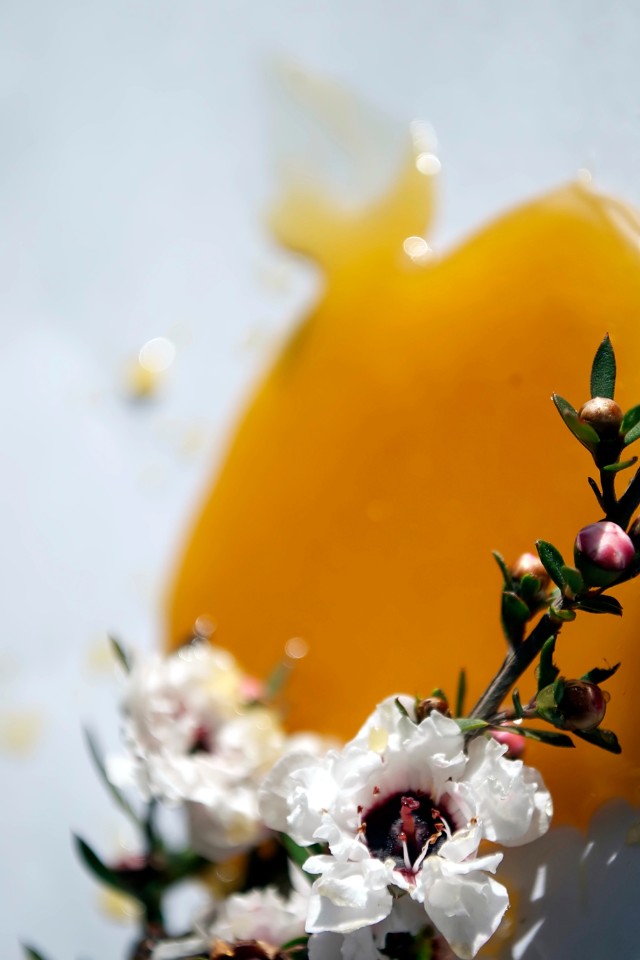
Potential Risks and Side Effects of Manuka Honey
While Manuka honey is generally safe for consumption, there are some potential risks and side effects that you should be aware of.
Allergic Reactions
If you are allergic to bees or other types of honey, you may also be allergic to Manuka honey. Symptoms of an allergic reaction can include hives, swelling, and difficulty breathing.
If you experience any of these symptoms after consuming Manuka honey, seek medical attention immediately.
High Sugar Content
Manuka honey, like all types of honey, is high in sugar. While natural sugars are better for you than refined sugars, consuming too much sugar can still lead to health problems such as obesity and diabetes. It is recommended that you consume honey in moderation.
Interference with Certain Medications
Manuka honey has been known to interfere with certain medications, such as blood thinners and chemotherapy drugs.
If you are taking any medications, it is important to consult with your doctor before consuming Manuka honey to avoid any potential interactions.
Risk of Botulism
Raw Manuka honey may contain a bacteria called Clostridium botulinum, which can cause botulism in infants and people with weakened immune systems. It is important to avoid giving raw honey to infants and to only consume pasteurized honey.
Dental Issues
While honey has antibacterial properties, consuming too much honey can still lead to dental issues such as cavities and tooth decay. It is important to practice good dental hygiene and consume honey in moderation.
Overall, Manuka honey is a safe and healthy food to consume in moderation. However, it is important to be aware of the potential risks and side effects and to consult with your doctor if you have any concerns.

Raw Honey vs Manuka Honey: Which is Better?
Raw honey and Manuka honey are both natural sweeteners that offer a variety of health benefits. However, there are some key differences between the two that may make one a better choice for you than the other.
Flavor and Texture
Raw honey is a type of honey that has not been heated or pasteurized. It is usually thicker and more opaque than other types of honey and has a more distinct flavor. The taste of raw honey can vary depending on the flowers that the bees have been pollinating.
Manuka honey, on the other hand, is made from the nectar of the Manuka bush, which is native to New Zealand. It has a unique flavor that is often described as earthy, slightly bitter, and rich. Manuka honey is also thicker than other types of honey and has a creamy texture.
Health Benefits
Both raw honey and Manuka honey offer a range of health benefits. Raw honey is rich in antioxidants and has antibacterial properties that can help to boost your immune system and fight off infections. It can also help to soothe a sore throat and calm a cough.
Manuka honey, however, is often touted as a superfood due to its high levels of antibacterial and anti-inflammatory compounds.
It has been shown to be effective in treating a variety of health conditions, including acne, eczema, and digestive issues. Manuka honey is also commonly used to treat wounds and burns due to its potent antibacterial properties.
Price
One of the main differences between raw honey and Manuka honey is the price. Manuka honey is significantly more expensive than raw honey, due to its rarity and the fact that it is only produced in New Zealand. Raw honey, on the other hand, is widely available and much more affordable.
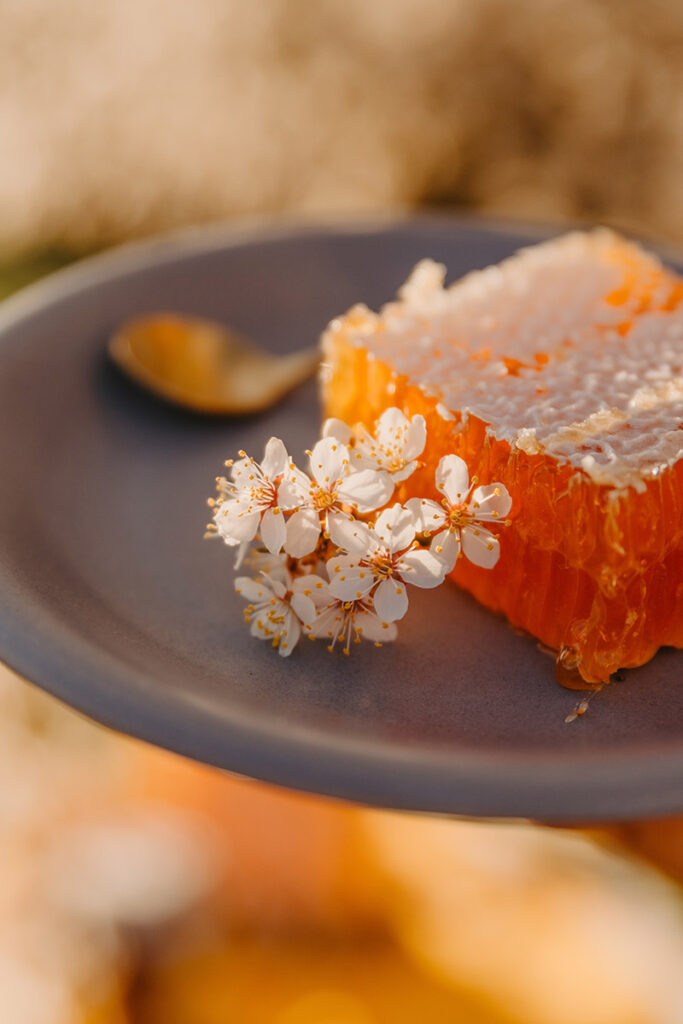
Final Thoughts
Both raw honey and Manuka honey offer a range of health benefits, but there are some key differences to consider when choosing between the two.
When it comes to choosing between raw honey and Manuka honey, it ultimately depends on your personal preferences and health needs.
If you are looking for a natural sweetener to add to your tea or smoothie, raw honey is a great option. However, if you are dealing with a wound or infection, Manuka honey may be more effective due to its antibacterial properties.
Regardless of which type you choose, it’s important to always opt for high-quality, raw and unprocessed honey to reap the most health benefits.
And remember, moderation is key when consuming any type of sweetener, including honey. Enjoy in moderation and savor the delicious taste and potential health benefits that honey has to offer.





